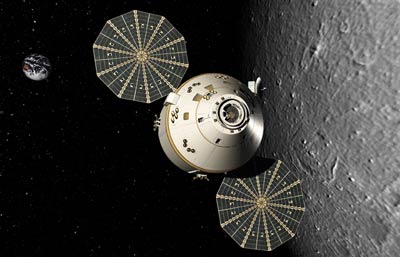Moving beyond scienceby Gregory Anderson
|
| There may not be a good way to sell going back to the Moon and on to Mars in a quick, neat, honest sound bite. That’s bad in today’s television-driven politics. |
The case for a base on the Moon is not as black-and-white as some would like, but that’s because we can’t predict the future. We can look at history and note physical expansion has been linked to economic expansion, but we can’t guarantee that will happen this time. We can’t be sure loosing entrepreneurs and other creative types into virgin territory will produce more good than bad, but we know that 400 years ago the leading power on Earth was in what we now call the Old World. We can note that expanding into new frontiers of various sorts has brought new knowledge and new insights, some of which has enriched and profoundly changed the expanding society, but, who knows, that might not happen this time. We can argue that the inner solar system is a dangerous place—knowledge rooted in the Apollo program—and that having a robust space capability, including offshoots of human civilization beyond Earth, is the only way to ensure the survival of our species, yet we can’t say there’s any hurry on that front. We can observe, however, that we have the knowledge and capability to begin a task of generations now. We can also observe that though, for all we know, the Earth might not be struck by a mountain from the sky for thousands or millions of years, neither can we say such an event won’t affect our grandchildren; we can only say we have the knowledge and capability to work towards stopping such a catastrophe now.
Is that a better case for moving into space than NASA’s committee-generated list? It’s no more specific. Should American taxpayers pay for government programs that do not have specific endpoints established at the beginning? In fact, President Bush has always said that other nations and private industry would be invited into the effort as partners. If they are, that would reduce the burden on the American taxpayer—not that the program as planned would take more than a tiny fraction of the federal budget in any case.
There may not be a good way to sell going back to the Moon and on to Mars in a quick, neat, honest sound bite. That’s bad in today’s television-driven politics. However, by leading a public debate on the future of humans in space—in all its facets—heading into the 2008 election campaign, the space community could perform a real public service.
